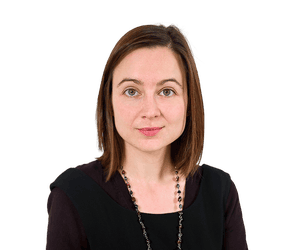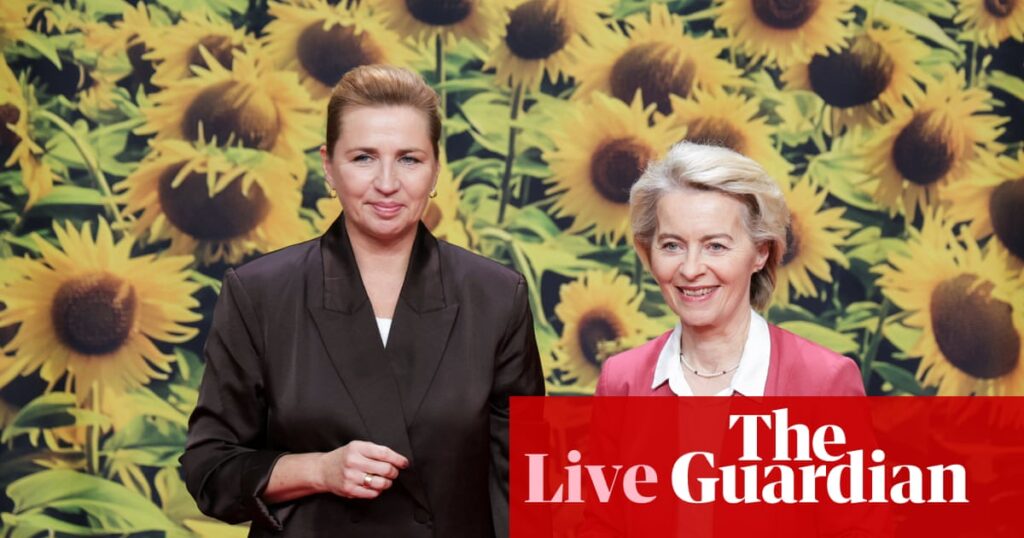Key events
Migration and Ukraine to dominate talks today, UK’s Starmer says
UK prime minister Keir Starmer said in his doorstep comments that illegal migration and Ukraine will dominate today’s talks.
“We’re certainly discussing illegal migration and looking at what further options we can take together. Obviously, I’ve always argued that working with other countries is always a stronger response.
So we’re looking at a number of options there. There’s a big appetite for it, a number of countries wanting to work with us and what more we can do. So we’ll be looking at that.
There is also, then, obviously, the question of Ukraine, and how we put in more support for Ukraine, put pressure on Putin. So it’d really be migration and Ukraine, the two dominant issues in the discussions today.”
Important to come together for talks with other European countries, Nato’s Rutte says
Given the security situation in Europe, Nato secretary general Mark Rutte is also joining the leaders for talks today.
On his arrival, he says it’s “important to come together” to discuss “everything going on now when it comes to our collective security, how to keep our sky safe, how to make sure that Ukraine stays in the fight as strong as possible now, but also to be in the best possible position when, hopefully one day, peace talks will start.”
He adds that the EPC format allows leaders to “have this format to come together, to chart a course, but also to [hold] dialogue in bigger and smaller format.”
European Political Community format brings leaders together for talks but some question its value – snap analysis

Jennifer Rankin
After the EU summit in Copenhagen… comes another European summit in the Danish capital. More than 45 leaders from across the continent are expected to meet as the European Political Community to discuss security, migration and the economy.
The EPC was proposed by French president Emmanuel Macron, after the full-scale invasion of Ukraine. It brings together almost every European country, barring Russia and Belarus, with the aim of promoting cooperation between EU and non-EU countries, especially on security and defence. Since its first gathering in October 2022, it has been hard to pin down results.
The one-day summits, with invites extended to 45+ leaders from Iceland to Azerbaijan, Finland to Portugal, are not intended to take decisions. Some diplomats have questioned the value of the frequency of the twice-yearly gatherings; others say the usefulness lies in the informal bilaterals and ad-hoc meetings on the side.
The first meeting was in Prague in October 2022, where EU leaders thought they had made progress in resolving the long-running conflict between Azerbaijan and Armenia. But it fell apart the following year when Azerbaijan’s leader Ilham Aliyev skipped a follow-up EPC in Granada, missing further talks with his Armenian counterpart, Nikol Pashinyan.
The first EPC summit in the Czech capital was notable because Liz Truss, the UK’s shortest-lived prime minister, decided that Macron was “a friend” after all.
The next EPC in Moldova in 2023 was seen as highly symbolic, soon after the former Soviet republic of 2.4m made a decisive bid to integrate with the west, while facing intense Russian pressure.
A gathering in the UK in 2024 was a moment for the then newly minted prime minister Keir Starmer to proclaim that Britain wanted to reset ties with Europe, after the muddle and turmoil of the Brexit years. Some EU insiders questioned the value of the meeting, which came soon after a Nato summit brought together most of the same cast.
Luuk Van Middelaar, a former adviser to a European Council president, thinks the EPC is proving its value. He makes the case for the organisation in a paper co-authored with Antoine Michon, a diplomat and visiting scholar at the Brussels Institute for Geopolitics.
They write:
“As demonstrated by the sustained high attendance at each summit, the EPC has become an essential piece of the political and diplomatic conversation in a war-facing continent, a fitting and timely response to the demise of Europe’s post-cold war order.
In and through the European Political Community, Europe has unearthed an older incarnation of itself, taking on the ancient diplomatic mantle of a polity of sovereign states.”
Morning opening: Let’s talk Europe

Jakub Krupa
After last night’s talks at the informal summit of the European Council, it’s now time for a bit more of political speed dating, with more European leaders as Copenhagen hosts the seventh summit of the European Political Community.
The format is not without its controversy, as some question its usefulness, but it offers a rare chance to discuss some of the most burning issues facing Europe with a broader group of European countries outside the EU – virtually everyone, except Russia and Belarus.
The leaders are gathering now, and will formally start their meetings in around an hour.
I will monitor their comments and bring you all the latest here.
It’s Thursday, 2 October 2025, it’s Jakub Krupa here, and this is Europe Live.
Good morning.

